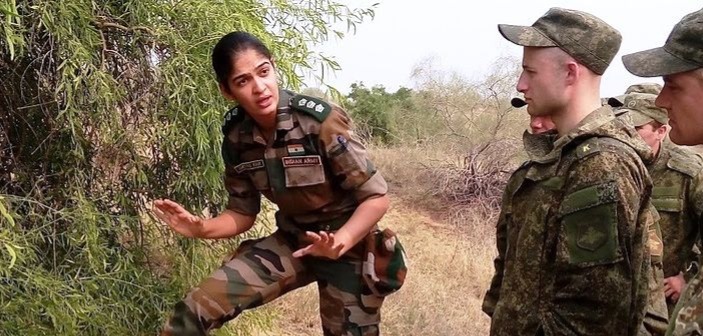New Delhi: Dismissing arguments made by the central government against giving women command appointments in the army on grounds of their ‘physiological limitations’ and domestic responsibilities, the Supreme Court ruled that the exclusion of women is illegal.
The landmark judgment is a victory for gender equality guaranteed by Article 14 of the Constitution. “Implicit in the guarantee of equality is that where the action of the State does not differentiate between two classes of persons, it does not differentiate them in an unreasonable or irrational manner,” noted the judgment by a two-judge bench of Justices Dhananjay Y Chandrachud and Ajay Rastogi.
“It is an insult to women as well as the army when aspersions are cast on women, their ability and their achievements in the army,” noted the 54-page judgment.
The apex court was hearing an appeal filed by the central government against a 2010 Delhi High Court decision that held that short service commissioned women officers are entitled to permanent commissions at par with men.
Appealing against that decision, the central government told the Supreme Court about the possible unwillingness of male troops, drawn from predominantly rural backgrounds, to accept a woman in command of their units.
Serving in the armed forces requires sacrifices and commitments ‘beyond the call of duty’, the Centre had argued. Women, it said, might not be able to meet these commitments owing to their responsibilities towards their families. Moreover, the capture of women as prisoners of war would put the women, their organisation and the government under ‘extreme stress’.
But the Supreme Court was not buying into what is called a ‘baseless’ submission.
Reliance on the ‘inherent physiological differences between men and women’ rests “in a deeply entrenched stereotypical and constitutionally flawed notion that women are the ‘weaker’ sex and may not undertake tasks that are ‘too arduous’ for them,” noted the judgment. In fact, said the judges, 30% of women officers are already deployed in conflict areas, belying the Centre’s own argument.
It was this ‘baseless submission’ that was, in fact, a turning point in the case, said advocate Aishwarya Bhati who along with Meenakshi Lekhi appeared for the women officers.
“The [central government] justification for why women should be kept out of command positions and permanent commissions made it clear to us that we needed to fight a mindset. After 28 years of serving in the army, this was an argument that went contrary to the Constitution and to womens’ own exemplary role in the army.”
Part of the legal strategy included bringing over 50 serving women officers to court. “It was not easy for a serving officer to come to court but it was important for us to show the numbers and the exemplary women officers whose bravery has been awarded by the army itself.”
The judgment too calls for a ‘change in mindset’. “If society holds strong beliefs about gender roles – that men are socially dominant, physically powerful and the breadwinners of the family and that women are weak and physically submissive, and primarily caretakers confined to a domestic atmosphere – it is unlikely that there will be a change in mindset.”
Women have been inducted into the Army since 1992, but only in certain branches and on short commission basis, initially for a tenure of five years. In 2006 their tenure was extended to 14 years. In 2008 women officers became eligible for permanent commissions but only in the army’s legal and education wings. As of January 2019, women comprised 3.89% of army personnel.
With women being granted permanent commissions at par with men, the next gender battle is likely to relate to allowing women in front-line combat roles in the army. “One step at a time,” said Bhati. Women have been inducted into the fighter stream in the Air Force since 2015 but combat roles in the army remain off-limits.
Cases pertaining to gender parity in the Navy and Air Force will be heard later today.
[Read the full judgment here: https://www.livelaw.in/pdf_upload/pdf_upload-370347.pdf]
( Namita Bhandare @namitabhandare is a Delhi-based commentator and a member of Article14's editorial board)

